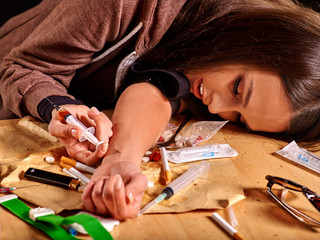A Parent’s Role In Helping Their Addicted Child Through Detox
It’s simply heartbreaking to see your child suffer through an addiction – it’s painfully difficult.
The drug is slowly killing them from the inside, and they can’t do much about it. Your child can try to quit it, but the withdrawal symptoms will keep them from doing so.
Watching them go through all of this must be one of the toughest situations a parent could ever experience. There’s no other way around it: it’s your role to help them get into recovery and over their addiction through rehabilitation.
Today we’re going to talk about all the things you can do to help them. You don’t have to stand by and watch helplessly as they self-destruct.
You can keep them from further spiraling out of control. Here are the many ways you can help your addicted child get through the process of detoxification.
-
Accept the Situation
This is a step that starts before rehabilitation even begins. Parents can stop beating themselves up over what they think went wrong and why their child is behaving that way. Instead, try to accept things are bad, and you cannot allow it to go any further.
As hard as it may be, you have to make that difficult decision to pursue rehabilitation and detoxification for your child.
Allowing them to feel the pain from their behavior is necessary to let them realize the importance of recovery.

The more you protect them, the longer you’ll allow their negative behaviors to persist. Seek out the best treatment or program for them right now.
-
Get Educated
Reading up on addiction and rehabilitation can go a long way in your quest against substance abuse. You’ll be equipped with the knowledge on how to find the right program, and what other steps you need to take.
Learn the various effects of the drug your child is addicted to, as well as the associated withdrawal symptoms. Try to find out how much they take and how frequently.
Also, learn whether your child is abusing more than one drug or substance. All of these will factor in when you’re trying to handle your young person’s situation and work with the finest professionals trained in addiction recovery.
-
Discuss Rehabilitation with Your Child

They are likely afraid of what’s going to happen in rehab. That’s the number one thing you should try to address: their fear of detoxification.
Give them your support by letting them know exactly what to expect. You have to let them know it’s going to be a complicated process, but you can make it through together.
Research what happens during rehabilitation, tell them about the facilities and the supportive environments within. Share with them your knowledge, and they will be less afraid of what’s next.
This will help them feel more comfortable before, during and after the program.
-
Keep them Committed
You can’t allow them to leave rehab just as soon as they encounter an obstacle. The reality and difficulty of the situation will hit, but you can’t let them get out just because of this.
Talk to them and discuss their concerns and reasons for wanting to give up. Ease their fears, convince them to stay.
-
Participate in the Rehab Process
Many rehab facilities encourage the patient’s family to participate. You should take advantage of this.
Interpersonal relationships tend to break down because of addiction problems. By helping and supporting your child during the rehab and detox process, you can mend your relationship with your child.
Guide and support your child. It will be much easier for them.
-
Manage the Rehab Details
You can take care of the payment and billing insurance so that your child could focus on the treatment. Look into drug rehab scholarships if you can’t afford addiction treatment.
Do whatever you can to make sure they can get the help they need. Remember they have enough to worry about.
Let them concentrate on the rehab process by taking care of the burdens.
-
Enforce Aftercare
Once the detox is completed, you have to make sure they don’t relapse. Aftercare is necessary.
Make sure they visit the hospital or rehab center when they need to. Support them throughout the experience, because relapse is always a possibility.
Encourage them and be there for them, and your child can finally get well again.






